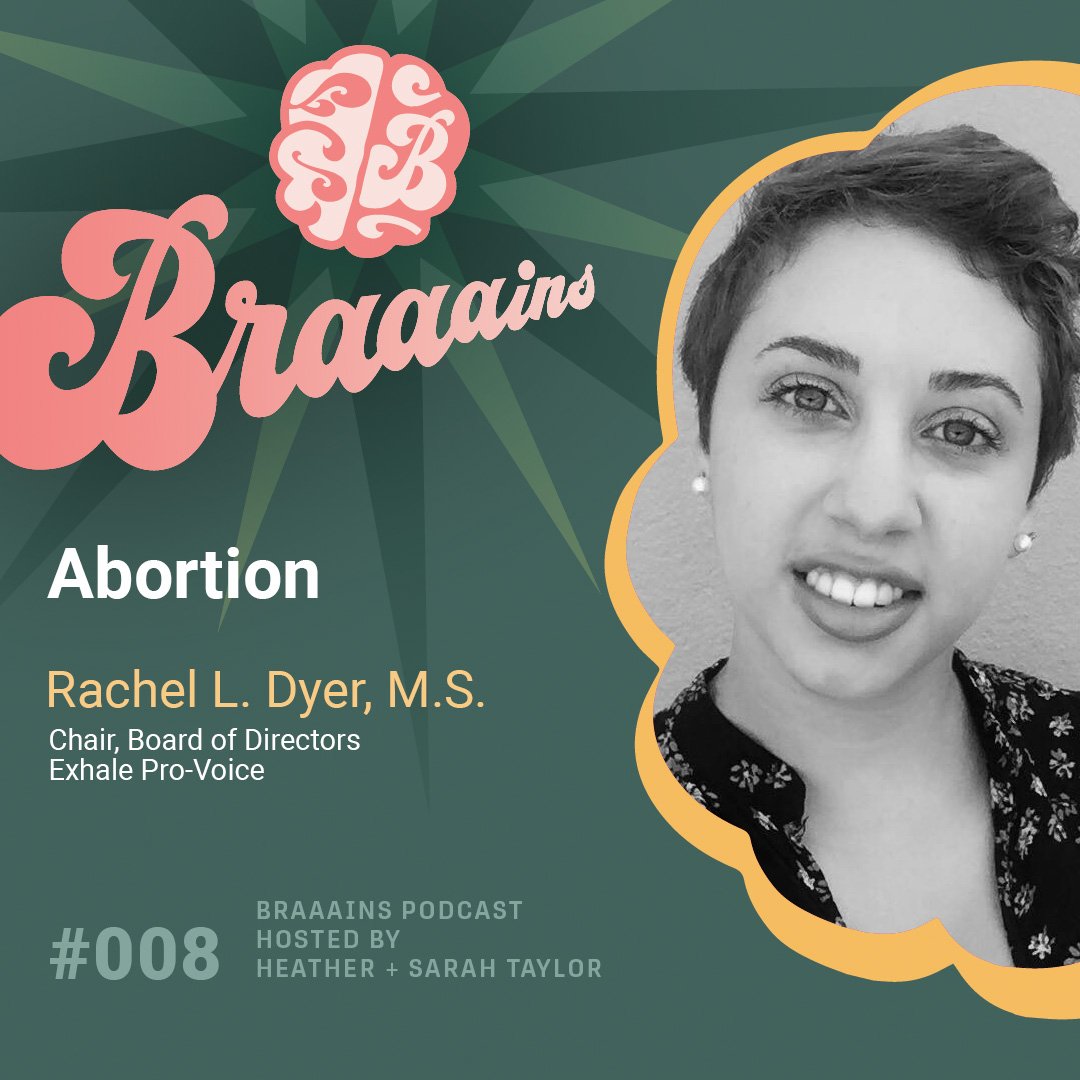Episode 008: Abortion
With the US on the precipice of recriminalizing abortion, we're having a two-part episode on this medical procedure, the impact stigmas have, and the importance of the right representation in media.
Today's episode features an interview with Rachel Dyer, the Board of Director's Chair of Exhale Pro-Voice, an international nonprofit organization that provides non-judgmental and abortion-positive after-abortion emotional support via text line, and trains medical and mental health providers to better support the emotional well-being of people after their abortions.
In this episode, you will be able to:
Challenge abortion stigma and show support to create a more inclusive society.
Recognize the importance of representation in media for diverse abortion experiences.
Foster non-judgmental spaces to encourage open and genuine discussions about abortion.
Explore perspectives on abortion within BIPOC communities for a broader understanding.
Emphasize the importance of education and uncomfortable conversations to break down abortion taboos.
CW: This episode will have discussions around medication abortions.
Music: Deppisch
Design: Perpetualnotion.ca
Mixing/ Mastering: Tony Bao
Additional editing: Blair Drover
Support this show: Patreon.com/BraaainsPodcast
MORE ON OUR GUEST
Rachel L. Dryer, M.S. (she/her/hers)
Rachel is a queer, white, cisgender woman from Wisconsin who had an abortion when she was a teenager. Currently, Rachel is the Board of Directors Chair for Exhale Pro-Voice – an international, non-profit organization that provides nonjudgmental and abortion-positive after-abortion emotional support via textline, and trains medical and mental health providers to better support the emotional wellbeing of people after their abortions.
In addition to her work with Exhale Pro-Voice, Rachel is an advanced Ph.D. student in Counseling Psychology at the University of Wisconsin-Madison. Across research, practice, and service, her primary aim is to examine and intervene on how dominant sociocultural narratives impact pregnancy and family-building desires, decisions, and experiences. Rachel utilizes both qualitative and quantitative research approaches to examine: 1) the emotional and psychological experiences of people engaged in family-building and prevention processes, and 2) the impact of others’ perceptions of pregnancy or family-building decisions, particularly how their perceptions may impact their ability to provide effective socio-emotional support.
When she is not working, Rachel can be found hiking with her mom, playing video games with her brother, and trying out new foods and restaurants with her husband.
FURTHER RESOURCES
Anti-choice extremists have been attacking abortion access in the U.S. since the procedure became legal nationwide in 1973. One tactic of theirs that most people have never heard of is FAKE "CLINICS." There are close to 3,000 fake clinics across the US vs. fewer than 800 actual abortion & reproductive health clinics.
Sometimes called pregnancy resource centers or crisis pregnancy centers (CPCs), fake clinics are often made to look like medical facilities, yet they don't practice medicine (outside of an occasional ultrasound or STI test), nor do they use medical facts or standardized ethics.
They use phony ads to trick pregnant people into making an appointment, promising “free ultrasounds” or “pregnancy support.” Once inside, people are lied to, shamed, and pressured about their reproductive health decisions, often delaying their procedure or pushing them past the deadline for a legal abortion altogether.
More and more, these predatory places are funded by taxpayer dollars, impacting poor women and people of color the hardest.
As a practical abortion fund, MAC helps people traveling to, from, and within the Midwest access a safe, legal abortion with support in the following areas: travel coordination and costs, lodging, food, medicine, and emotional support.
They support women who cannot otherwise access an abortion or miscarriage treatment and protects their human rights.
Plan C provides up-to-date information on how people in the U.S. are accessing at-home abortion pill options online.
Nearly 1 in 4 women have an abortion in the U.S. Despite this, there is a culture of stigmatization of sexual and reproductive healthcare that acts to silence people who have had abortions. Bridging the Gap seeks to facilitate conversations to reduce abortion stigma and inspire advocacy.
By having one-on-one conversations, they help people understand their abortion attitudes in a deeper way, and make the connection with what they believe and how they vote.Deep canvassing is about long-term change. Over the past five years, they have shown the incredible power of this work to change minds, build bridges across different life experiences, and inspire action in support of pro-abortion rights policies, like insurance coverage for abortion.
Listen to recent episodes on Apple podcasts:

